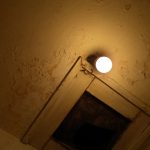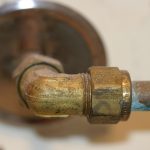Many new homeowners don’t have the skills or accumulated knowledge to deal with minor plumbing issues, it is true that there are problems that require a professional plumber, but you may be surprised at what you can achieve with a little knowledge. In this article, we will present eight professional plumbing tips for homeowners.
Locate the Water Main
Anything that you do in your home that’s plumbing related will require that you shut-off your water supply. This is particularly true in an emergency situation when you want to get the water turned off as quickly as possible. Water causes a lot of damage in a very short period of time, and it can be expensive to fix. Located the water main and make sure that everyone in the home knows the location. Consider making a note in your phone or perhaps have a handy reminder where everyone can see it easily. In a plumbing emergency, locating the water main will be hard, and it’s a great idea to know where it is in advance to save time. In most modern homes, the shut-off valve is located in the main bathroom high up on the wall.
Know Your Plungers
Many people have a plunger in their home toolkit to clear clogs from sinks, tubs, and shower stall drains. But, did you know that there are different types of plungers to clear various types of clogs? For your basis sink or tub, you will need the classic cup plunger that is ideal for placing over a flat drain. But, if you want to clear a clog in your toilet, you need a dedicated toilet plunger, and at first glance, this looks like a cup plunger. If you look carefully at a toilet plunger rim, you will notice an additional flexible rubber flange that the standard cup plunger doesn’t have. This flange allows you to use the toilet plunger on a non-flat curve surface that you would find in your toilet bowl. If you want to be fully prepared to deal with clogs, get a cup and toilet plunger and keep them handy.
Drain Clog Prevention
Prevention is always better than the cure, and drain clogs can be a real annoyance when you want to drain your sink or tub. The best way to avoid drain clogs is to keep certain materials out of the drain altogether. Substances such as oil, grease, fat, hair, coffee grinds, floss, and others should be placed in the garbage. Some people pour warm or hot grease and oil in their drain, believing that they will be flushed away. But, what happens is that these fats cool down in the drain and solidify to form a clog. This sticky substance then grows as other materials stick to it, and eventually, it could be very hard to remove without professional help. Add a drain trap to every drain and make sure everyone in the home understands that substances should not be placed down the drain.
Avoid Overheating Your Water
When the weather turns colder, most of us enjoy using hot water for comfortable showering and bathing. But, some people take things too far, and they overheat their water. This places additional strain on the water heater, and it will certainly drive up your energy bills. If the water is too hot, it can quickly scald the skin of an unaware user or visitor to your home. Avoid a trip to the emergency room by using warm water instead of super heated water. If your water temperature is unpredictable, contact a local certified plumber and get them to check your water heater.
Be Mindful of Plumbing Pipes
Throughout every modern home, there is a network of interconnected plumbing pipes and fixtures. Many of these pipes are located under floors, behind walls and in ceiling spaces that are hard to access. For this reason, we forget about these pipes until something goes wrong in our homes. Every year people accidentally drill into plumbing pipes behind walls as the install furniture or hang a picture. This can be avoided if you invest in a stud finder that can locate hidden plumbing pipes for you.
Toilets are Not a Garbage Disposal
Many homeowners use their toilets as a garbage disposal, and this can have disastrous consequences. A toilet is designed to handle human waste and toilet paper, and that is it. Any other materials will only lead to the formation of clogs that can cause the toilet to back up into your bathroom. Avoid “flushable wipes” when cleaning your toilet because they are a common cause of toilet backup issues. Instead, place a bathroom bin by the toilet and place all waste there for later disposal in the garbage.
Invest in a Wet/Dry Vacuum
If you have a clog that is caused by a smaller or harder object such as a comb, toothbrush, or a dropped child’s toy, it can be hard to remove with your hands. The last thing that you want to do is accidentally push the object further into the drain. The best way to approach this problem is to suck the object out using a wet/dry vacuum.
Pay Close Attention to Leaks
If you have a leaky faucet, it can be annoying, and it can make it hard to sleep at night. But, there is a more important issue, each and every drip represents your hard earned money going straight down the drain. A simple drip may seem trivial, but if you add up all those drips, you could be losing as much as 8 gallons of water per day. If you have a running toilet, you could be wasting up to 200 gallons of water per day. So, if you have a “minor leak” get it fixed quickly to save money and to prevent the leak from becoming worse over time.
As you can see, there are many plumbing tasks that you can perform with little to no formal training. But, when you do come up against a plumbing task that’s too hard to handle, call a local plumber for expert help. They have the training, experience, and specialized tools to handle plumbing problems quickly.
By Giovanni Longo President Flood Brothers Plumbing
Giovanni Longo is a 3rd generation master plumber who has been practicing his craft and trade in the greater Los Angeles area for well over a decade and a half. A plumbing and hydraulics-engineering innovator, Giovanni’s particular world-class expertise focuses on dealing with challenging sewer system designs as well as resolving complex commercial and residential draining issues. As a certified Flood Mitigation expert, he is also well versed in a wide variety of water damage and remediation solution.





